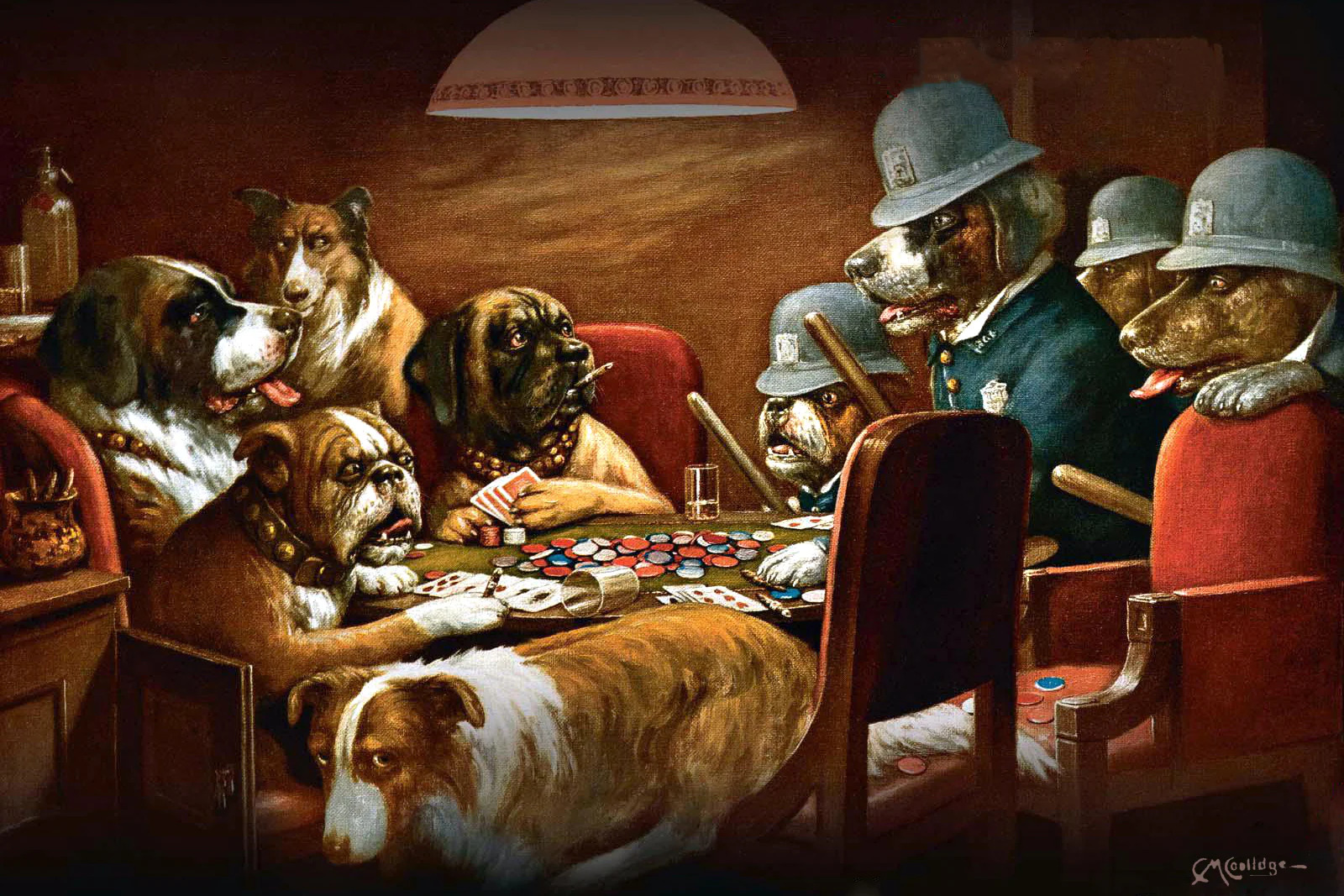 |
| An SP with different trainers from different schools. [In the Draper's Shop via wikimedia] |
As I mentioned in Irregular standards: working at multiple schools, specific training for new SPs is often non-existent, leaving you to learn on your own how the training & standards at this school differ from other schools. But even for experienced SPs, different schools handle training in different ways:
For instance, as an SP you never know when you'll receive the case you are scheduled for before the event begins. In a couple of extreme cases, I have received a case on the day I was scheduled to perform it! But usually the range is anywhere between 3 weeks and 3 days before the event.
Some schools pay for you to learn the case from home while others do not. If you are paid for home preparation, the amount can range anywhere from 2 hours to 30 minutes.
Some events don't even offer training. Everything you glean from the case is what you will use to perform it. Sometimes you can send questions to the person who sent you the case, but they often go vaguely unanswered. In these events, I always feel like each event is an audition, not a role, and I feel like I'm holding my breath the whole time.
Schools are inconsistent about when they offer training for cases. Sometimes you're trained on a case just once no matter how many times you do it again, but sometimes you're trained on a case every time no matter how many times you've done it. Sometimes a program that used to train SPs for a particular case stops training for it because they feel like everyone knows it -- but which means new SPs assigned the case are on their own.
If training is scheduled, it can take a variety of different forms. Sometimes training is scheduled individually, sometimes in a group with others doing your case, sometimes in a group with everyone doing all the cases. Training can be anywhere between 2 hours and 15 minutes. It can be scheduled up to two weeks before the event or just before the event. Only rarely is training more than one session.
Training can include several items, not all of which happen at every school/event (even if they should):
Or it could be a free-for-all where SPs call out questions about their case(s) at random. This is my least favorite format.
- Contextual overview of case(s) or event in the school's curriculum
- Basic info about the event, like timing, what to do with linens, where to store materials, relevant policies/standards, etc.
- Reading of the case and/or checklist aloud
- Discussion of common pitfalls or issues
- Feedback training
- Physical demonstrations
- Role playing
- Quizzing SPs to check for memorization & consistency
The trainer varies widely at institutions. Some events are trained by a faculty member, sometimes the SP manager, sometimes the head of the educational program, sometimes a Dean, sometimes a TA, sometimes a fellow SP, sometimes a dedicated program trainer.
Similarly, the skill level of the trainer varies widely. Just like any other instructional event, some teachers are patient, prepared, accommodating and welcome questions. Others are brusque, impatient, or more clueless about the case than we are. Also, SPs can be quite a handful at training if you let them; keeping us on task can be quite a challenge and different people handle that better than others.
Something most schools are missing, however, is follow through. What happens after the training/event? If the training happens several days/weeks before the event, I appreciate an email with training notes so I remember how the training may have affected my reading of the case. Also, most schools don't have a good feedback loop to make changes to the case after the event: it's nobody's job to compile SP questions and make edits so SPs don't ask the same questions every time. Also, if nobody makes changes to the case based on SP questions, then case drift becomes a real risk -- an invisible body of knowledge about those cases that is inaccessible to any new SP who learns the case.Extra credit!
Many schools have one or two particular training formats for all their events -- so even if the training is different at each school, at least it's consistent at the school. But one school I work with is all over the map, with almost every possible permutation of the above factors. It's a bit dizzying.
Setting the standard:
My preferred training standard would be a case sent out at least a week ahead of time, with time for questions before the event. SPs would be paid for an hour of at-home prep. Questions would be responded to promptly and the answers coordinated for all at the training held at least an hour before the event. The trainer would be someone who knows how to teach well, and knows enough about the cases to answer most questions about it. The trainer would also be empowered to ask questions of an appropriate faculty member if something unexpected came up during training. SPs could contact the trainer during the event from inside the room to ask a question about the case or grading if necessary. After the event, SP questions would be consolidated and the cases edited before the next event.





